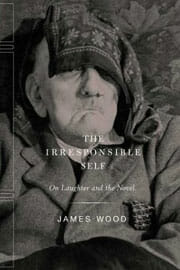
Let’s start with the obvious: James Wood is probably the finest book critic now working—an ambitious, accessible literary essayist in the mold of Lionel Trilling or Virginia Woolf. Other critics introduce, synopsize, quibble, judge and move on; Wood sifts a novel as finely as his favorite writers—Woolf, Henry James, George Eliot—sift their characters, finding in a single sentence or subtle narrative choice the kind of revealing detail James found in an article of clothing. As a collection of essays with which to wile away an afternoon, this book is a joy. Whether he’s trying to make sense of Coleridge, attacking the “hysterical realism” of Zadie Smith and Don DeLillo, or issuing Tom Wolfe a well- deserved beatdown, Wood is one of the richest, most entertaining writers we have.
But as its subtitle indicates, Wood’s book aspires to be more than a haphazard stringing together of essays that are terrific in themselves; he has arranged and, in places, partially rewritten them in order to make an argument about the history of humor and the novel. He wants to sketch the development of what he calls the “comedy of forgiveness,” which “can be distinguished—if a little roughly—from the comedy of correction.” Laughing with, in other words, versus laughing at. Wood believes that the gentler, more sympathetic kind of comedy arose during the Renaissance, at first in the writings of Erasmus, then in Shakespeare, whose compassionate habit of allowing his characters to ramble helped give birth to “the novelistic idea we have bottomless interiors that may only be partially disclosed to us.”
It’s an interesting argument not cohesively developed by the book’s latter sections, and problematic besides. In trying to show that the comedy of laughing with is a development of modern Enlightenment liberalism, superior to the more astringent, satirical, corrective kind of comedy he associates with religious belief, Wood gives short shrift to the latter, and reveals again his tortured relationship with Christianity (also seen in his first novel, last year’s The Book Against God). Why, for example, does he ignore Chaucer when The Canterbury Tales provides a fine instance of a text that veers between the two modes of humor? As for “comedy of correction,” Chesterton among others has pointed out that good satire requires an affection for its targets. Wood’s failure to more sufficiently defend his categories is odd—as if he’s simply setting up dichotomies for further examination at some point.
Still, one can only do so much complaining about such an intelligent, witty and bafflingly learned collection. The story of Wood’s engagement with books is, in its way, as engaging as the plot of any novel; it’s one we’re lucky to be able to follow.